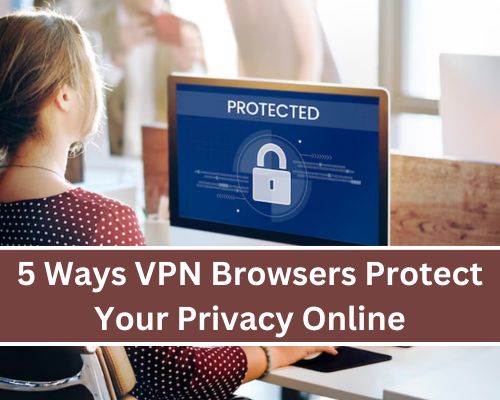In today’s digital age, online privacy is more important than ever. With cyber threats, data breaches, and invasive tracking becoming increasingly common, protecting your personal information is critical. VPN browsers are powerful tools designed to safeguard your online privacy. Here’s a breakdown of five key ways they keep your data secure while enhancing your browsing experience.

5 Ways VPN Browsers Protect Your Privacy Online
1. Encrypting Your Internet Traffic
XNXUBD VPN browser APK use advanced encryption protocols to secure your internet traffic. This ensures that any data transmitted between your device and the websites you visit is unreadable to hackers, ISPs (Internet Service Providers), and even government surveillance programs. Common encryption standards include AES-256, which is nearly impossible to crack.
| Encryption Standard | Key Size | Usage |
|---|---|---|
| AES-128 | 128-bit | Moderate |
| AES-192 | 192-bit | High |
| AES-256 | 256-bit | Very High |
By encrypting your traffic, VPN browsers create a secure tunnel that shields your data from prying eyes.
2. Hiding Your IP Address
Every device connected to the internet has a unique IP address that reveals your location and identity. VPN browsers mask your IP address by routing your connection through servers located in different regions. For example, if you’re in the United States but connect through a server in Germany, websites will see the German IP address instead of your actual one. This anonymity protects you from:
- Geolocation tracking
- Targeted advertising
- Online stalking
3. Preventing Tracking and Data Collection
Many websites and online platforms use cookies and tracking scripts to monitor your activity. VPN browsers often come with built-in features to block these trackers. This ensures:
- Minimal data collection: Your browsing habits remain private.
- Improved loading speeds: Less tracking means fewer resources are consumed.
- Better ad-blocking: Many VPN browsers include ad-blockers that enhance user experience.
4. Protecting on Public Wi-Fi
Public Wi-Fi networks are notoriously insecure. Hackers often exploit these networks to intercept sensitive information like passwords, credit card numbers, and emails. VPN browsers add an extra layer of security by encrypting your connection, even on open networks. This makes it virtually impossible for attackers to access your data, ensuring safe browsing in:
- Cafes
- Airports
- Hotels
- Public transport hubs
5. Bypassing Censorship and Geo-Restrictions
Many countries and institutions impose restrictions on certain websites or online services. VPN browsers enable you to bypass these limitations by allowing you to connect to servers in unrestricted regions. This is particularly useful for:
- Accessing streaming platforms (Netflix, Hulu, etc.)
- Using social media in censored countries
- Conducting research without barriers
| Region | Content Restricted | VPN Solution |
| China | Social media, Google services | Connect to US or EU servers |
| Middle East | Streaming platforms | Use VPN-enabled browsers |
| Workplace/School | Gaming and social media sites | Bypass restrictions securely |
Conclusion
VPN browsers are indispensable tools for maintaining online privacy and security. By encrypting your traffic, masking your IP address, blocking trackers, and bypassing restrictions, they empower you to browse the web with confidence. Whether you’re a casual user or a privacy enthusiast, investing in a reliable VPN browser can make a world of difference in protecting your digital footprint.